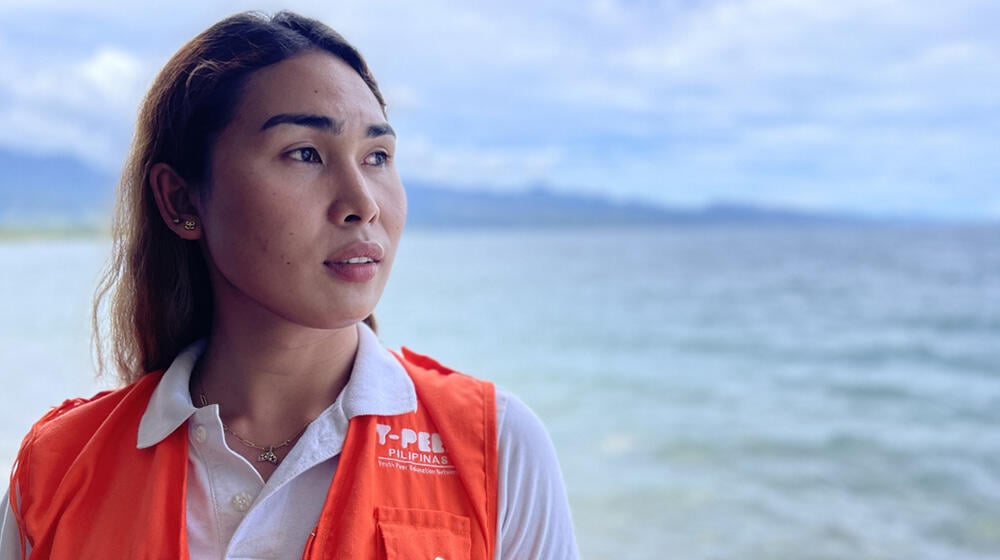Philippines: Chrisly is a proud transgender woman in a conservative part of the Philippines. She struggled to be accepted even in her own family. Her leadership has inspired a generation of youth in Southern Leyte and increased focus on services that reach marginalised groups, especially in emergencies. She was part of the disaster response to Super Typhoon Odette that devastated her community in 2022.
“I was inside our house when it got damaged by the typhoon,” she recalls. “The water level rose and the drainage was clogged with debris and wood. The water kept rising, so it felt like we weren't safe anymore, even at the evacuation centre. I thought that it was going to be our last experience in life because if the rain and wind hadn’t stopped, we might have died there as the water continued to rise.”
As her community picked up the pieces from the storm, Chrisly went into action supporting marginalised groups. Her inclusive approach helped provide reproductive health services to young people in the aftermath of the storm when homes, roads and clinics were destroyed.
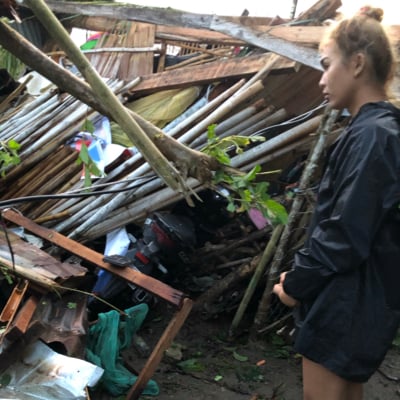 |
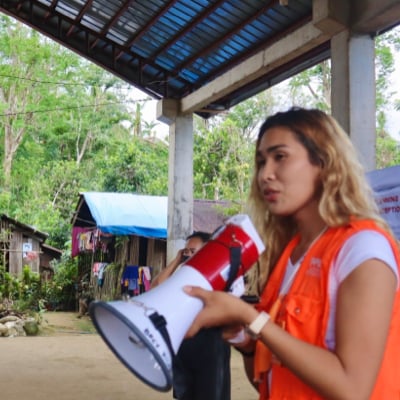 |
“To be part of a humanitarian response makes me understand the needs of people on the ground,” she says. “It’s not just about what’s happening at a surface level; I feel more connected to what people need. When we have an empowered and resilient community, the community will help our UN partners, humanitarian actors, and government agencies to create interventions that reach everyone, ensuring that no one is left behind.”
Chrisly saw firsthand the importance of humanitarian work during reproductive health medical missions. “I interacted with a lot of people and given that the peer education sessions are community-based and school-based, I realised the importance of training more key populations on the ground. I was able to become a humanitarian actor.”
“To be part of a humanitarian response makes me understand the needs of people on the ground.”
She says when it comes to providing aid, many members of the LGBTQI+ community were not given assistance. “They are not recognized as a family because they are not married, and it's illegal for them to get married in the Philippines. Most of our young LGBTQI+ are a marginalised group in the community. They don’t know the emergency plans, and when we talk about the number of people in the household, only males and females are counted. So, we can’t really emphasise how many in that household are trans women, self-identified men and women."
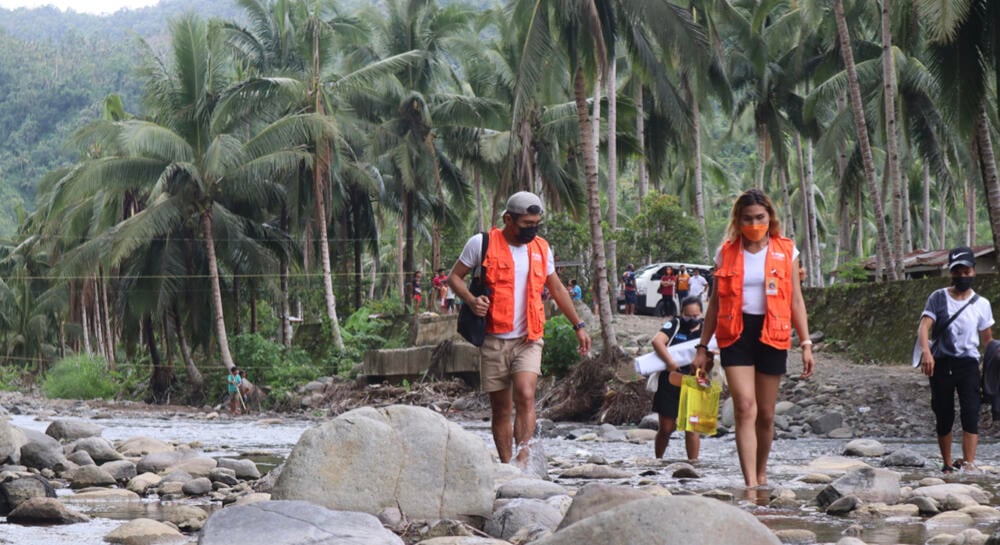
Chrisly says the evacuation centres in Southern Leyte were not always designed with inclusion in mind. “In evacuation centres, LGBTQI+ people struggle with the restrooms that are only labelled ‘male’ and ‘female.’ As a transwoman, whenever I try to use the women’s restroom, the centre’s guards would call me out and ask, ‘Why are you going there when your genitalia is of a male?’ However, if I try to use the men’s restroom, I would be accused of being a pervert that’s spying on the men inside. We don't know where to go to the restroom during disaster response, and I know I'm not the only one experiencing this.”
She says evacuation centres can't accommodate a large number of evacuees so many in her community shelter at home. “Those who don’t go to evacuation centres are not included in the data, and only those in the centres receive household items (to help rebuild their homes). This results in the intervention not directly reaching all the victims, only those in the evacuation centres.”
Chrisly says that when sexual health interventions are not visible and immediately accessible to all, that’s when gender-based violence and sexual abuse start to occur. “When we conduct community peer education, there was one transwoman who approached me and said, ‘Thank you so much for being here because now I know how to protect my rights and I know where to go whenever I experience this kind of bullying.'”
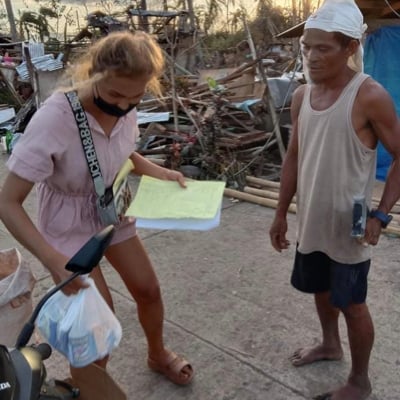 |
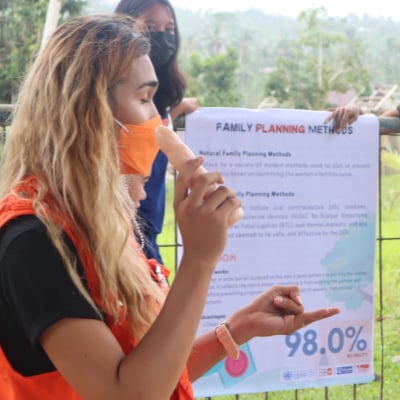 |
During Super Typhoon Odette, many people living with HIV struggled to access antiretroviral treatment because the roads were difficult to navigate. “They would ask, ‘When can we get a refill?’. It made me realise then that the response did not include interventions for young LGBTQI+ individuals living with HIV, so the interventions were not aligned with and did not include their needs. It would be better to include specific interventions to ensure that no person’s needs are overlooked.”
She says marginalised groups like trans women can be peer navigators on the ground in humanitarian response. “They can be helpful giving services specified to the marginalised groups. I believe that’s what’s really important and that’s how Y PEER Philippines helped me shape my approach.”
"I hope that everyone can understand what it feels like to be yourself and express who you really are as a person.”
Chrisly continues to advocate for acceptance of trans people in the Philippines by appealing to a shared sense of humanity. She hopes everyone in the community can give equal respect. “At the end of the day, we all live on the same planet. It’s better to live in a community free of discrimination and judgement because we all live fairly. Every one of us has the right to live equally and access opportunities equally. I hope that everyone can understand what it feels like to be yourself and express who you really are as a person.”
Her goal is to move beyond tolerance and encourage people to become an ally. “Help us build a community with safe spaces where everyone can express their own potential. A safe environment will create a safe space for everybody where everybody can express who they are and what they are as a person.”
Learn more

